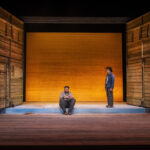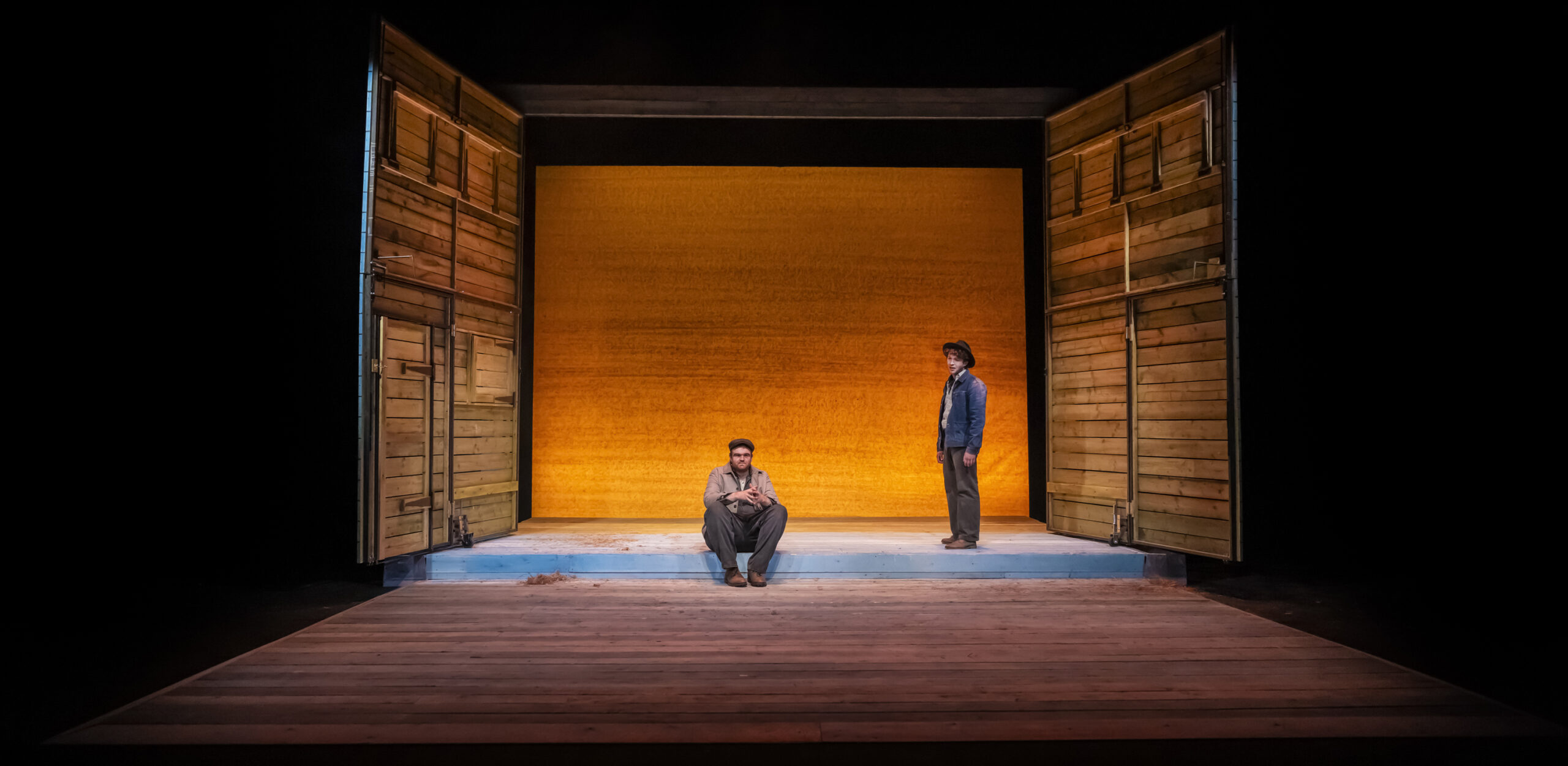Good Day, a darkly comic exploration of humanity in a world of artificial intelligence, opens at VAULT Festival later this month. The production combines spoken dialogue, movement, and video – including creative captions – to examine the relationship between humanity and technology.
As she geared up for opening night, we spoke with director Marlie Haco to understand more about the opportunities the play and its themes presents a director, and what it’s like to open a play at VAULT.
Q&A with Marlie Haco
Hi Marlie, thanks for talking with us! Tell us a little bit about your background – how did you get into directing?
I’ve always been drawn to the theatre world and was lucky enough to grow up in London seeing lots of shows and participating in dance and drama classes. After school, I trained in acting, but soon realised I was most excited by the prospect of shaping a narrative and collaborating with others to bring an imagined world to life and therefore that directing was what I really wanted to do. In studying English at university, I spent more and more time with play-texts and found that I just couldn’t get enough. From there, I started working with playwrights to develop their scripts for performance and it’s been through my work as a dramaturg that I’ve discovered new writing I felt compelled to realise on the stage.
You’re directing the new play Good Day at VAULT Festival. What can you tell us about the play?
Good Day is a dark comedy that explores woman’s a desire to die in a world of advanced AI where immortality is the norm. It looks at how her life is changed by the bond she forms with her android therapist who, by contrast, wants to be alive. The play uses the characters’ relationships to question the extent to which we can still find meaning and connection in our lives when our time is infinite and asks what could be enough to keep us alive forever.
What opportunities does Good Day present to you as a director?
From a first read of the text, I was excited by the challenge of visually representing the play’s futuristic setting – a world in which humans are immortal and androids can (to some extent) function as autonomous beings who experience emotions and desires. On the surface, this world is utopian, but in directing the play, I’m keen to also expose the dystopian underbelly of the setting, presenting technology as an omnipresent force that may have saved the characters from death, but also damned them to a life devoid of agency. For example, I’ve chosen to embed creative captions into the design of the show, as a means of provoking us to consider who is writing the script, the humans or the AI? Good Day has offered me the opportunity to explore using video in my work for the first time.
I love how comedy and tragedy lie so closely together in the play and I hope my production finds ways to hold both simultaneously. Above all, I am excited by the opportunity to use live theatre – where we can incorporate elements like movement and music – to dramatise the deeply human story at the heart of a play set in an age of advanced AI.
How does it feel to be opening a play at VAULT Festival?
Really exciting! I’ve never been part of the festival before so I’m nervous, but really looking forward to sharing the production with an audience and to get a sense of how it is received. We would love to use the festival as a springboard for future runs of Good Day and hope that the show will transfer to another London venue and/or tour to regional theatres.
I’m excited to see other Vault shows too – there’s so much talent and creativity in what’s been programmed, I will certainly be inspired by the other artists in the line-up!
Finally, how would you describe Good Day to someone considering buying a ticket for the show?
Good Day looks at what it means to be human in a futuristic age where mortality is removed and thoughts and emotions can be mimicked by AI. Combining the spoken word with movement, music and video, the production promises to offer a darkly comic critique of immortality and a poignant tribute to impermanence.
Good Day is at Network Theatre, Waterloo from 7 to 12 March, with tickets available now.
To find out more about the show and the team behind it, you can follow them on Instagram & Twitter @doubletelling – they would like to thank Arts Council England for making this project possible.












.png)



